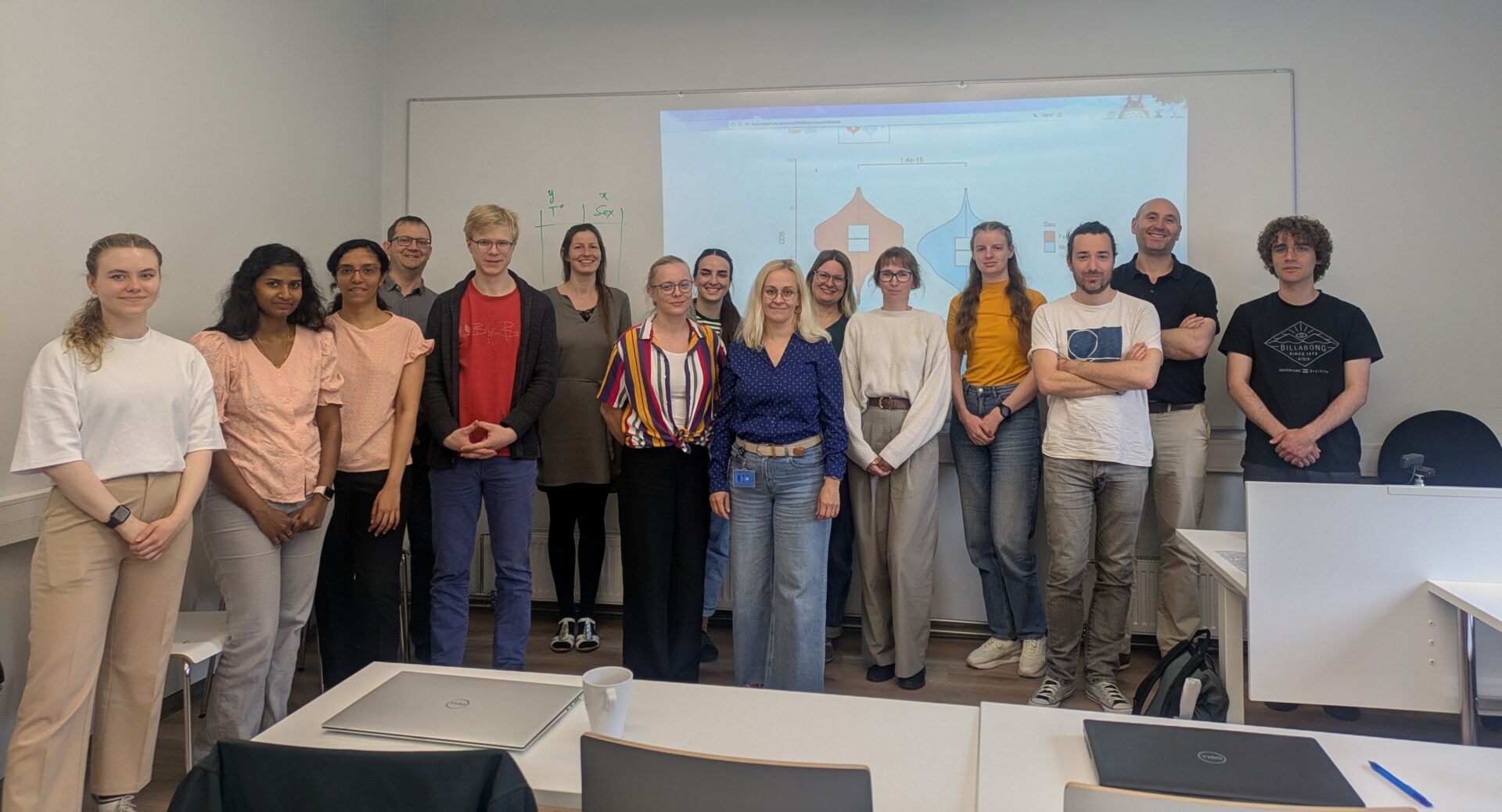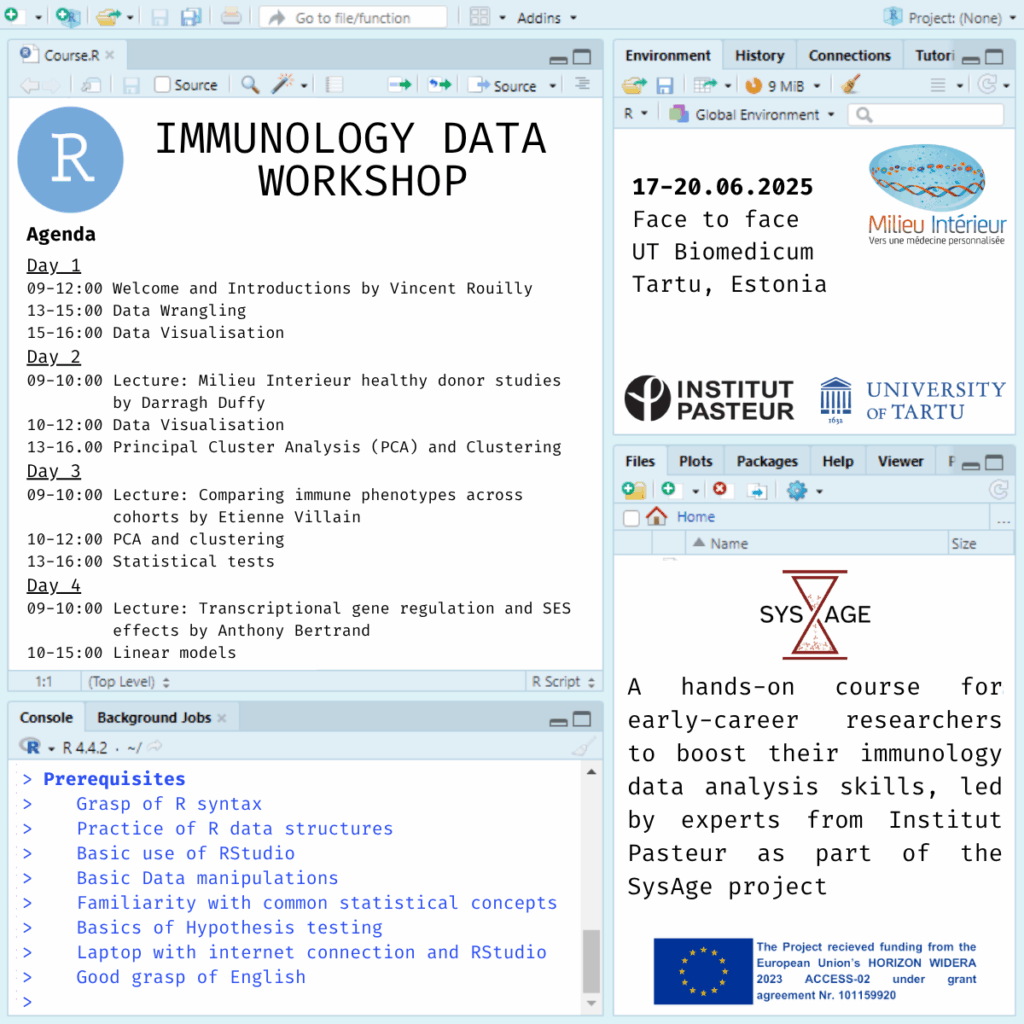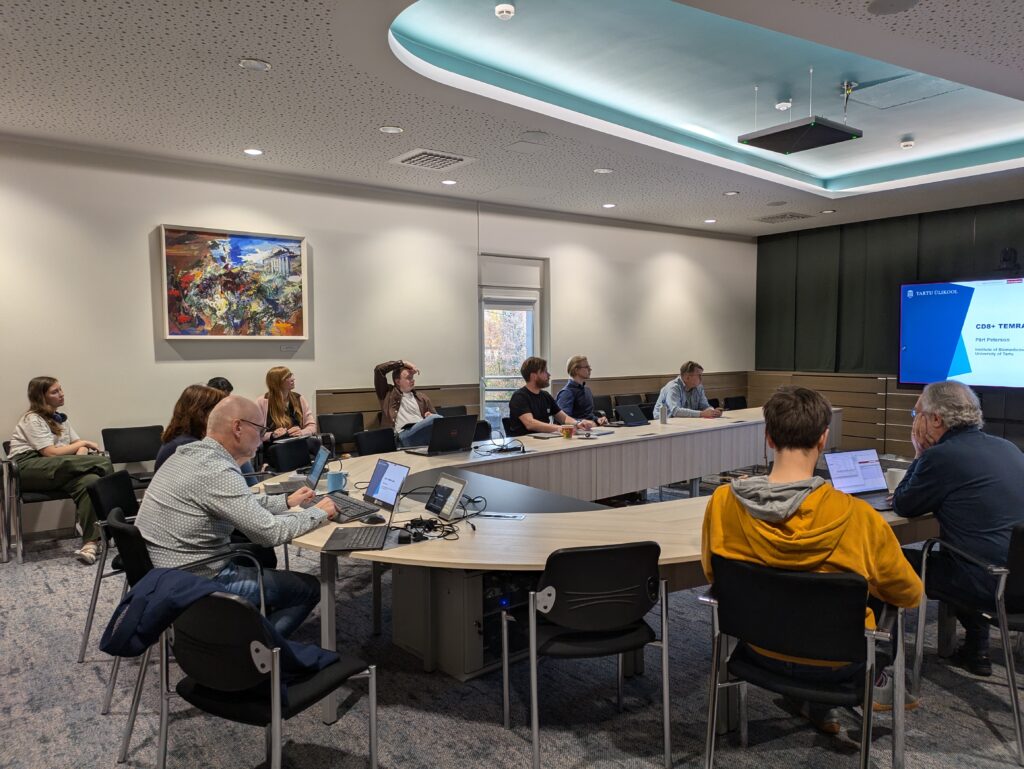Building Computational Skills in R with our partners from Institut Pasteur
From 17–20 June 2025, more than 15 early-career researchers gathered in Tartu for a four-day R course on immunology data analysis, organized as part of the SysAge project in collaboration with Institut Pasteur. Hosted at the University of Tartu’s Biomedicum, the workshop was designed to help PhD and Master’s students strengthen their ability to work with high-dimensional biological datasets using R.
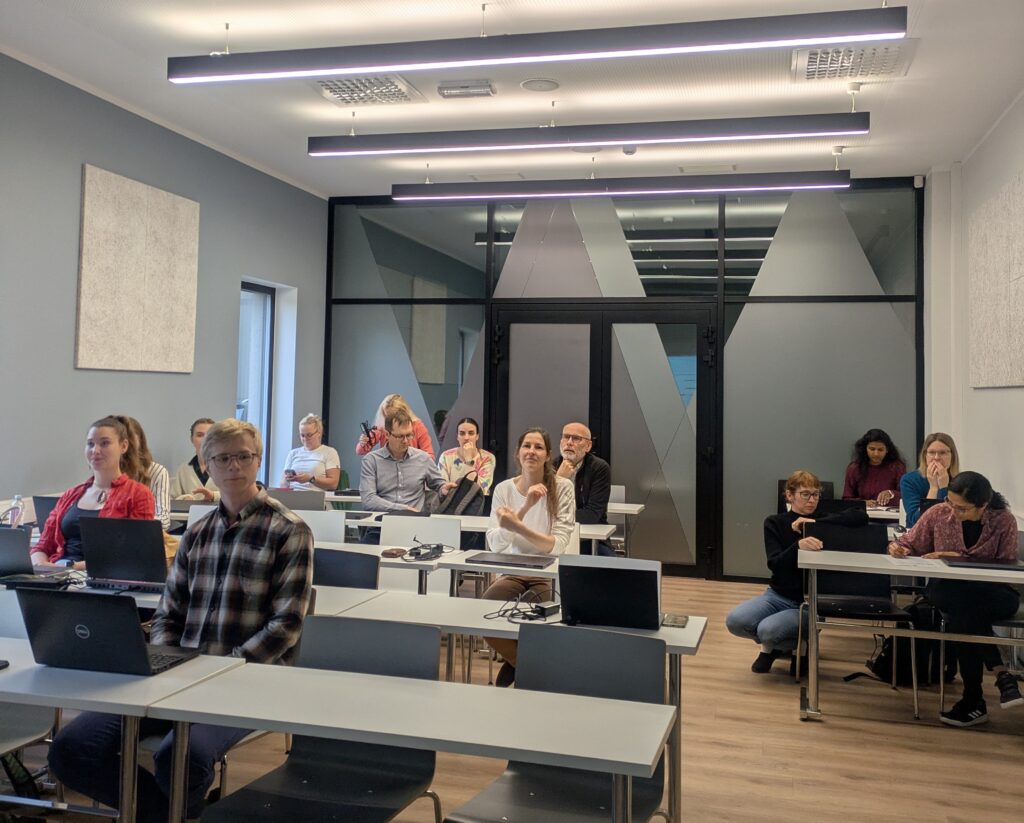
The course offered a deep dive into essential data analysis techniques commonly used in systems immunology. Participants explored everything from data wrangling with tidyverse and visualization using ggplot2 to principal component analysis (PCA), clustering (including workflows combining R and Python), linear models, and statistical testing. In addition to working with real-world immunological data, participants also learned how to simulate datasets, a valuable technique when testing out code or developing workflows prior to real data availability.
Sessions were led by experienced researchers from Institut Pasteur, all of whom are closely involved in the Milieu Intérieur project, an international initiative aimed at mapping healthy immune variability.
Each day began with an open morning seminar, where the instructors presented their research and demonstrated how computational tools are used to investigate immune variation and disease mechanisms. The topics included:
- Immune variability and healthy donor cohorts – Darragh Duffy
- Comparing immune phenotypes across populations – Etienne Villain
- Transcriptional regulation and socioeconomic influences – Anthony Bertrand
These talks provided valuable scientific context for the technical content of the course, offering participants a complete picture of how data analysis fits into contemporary immunology research.
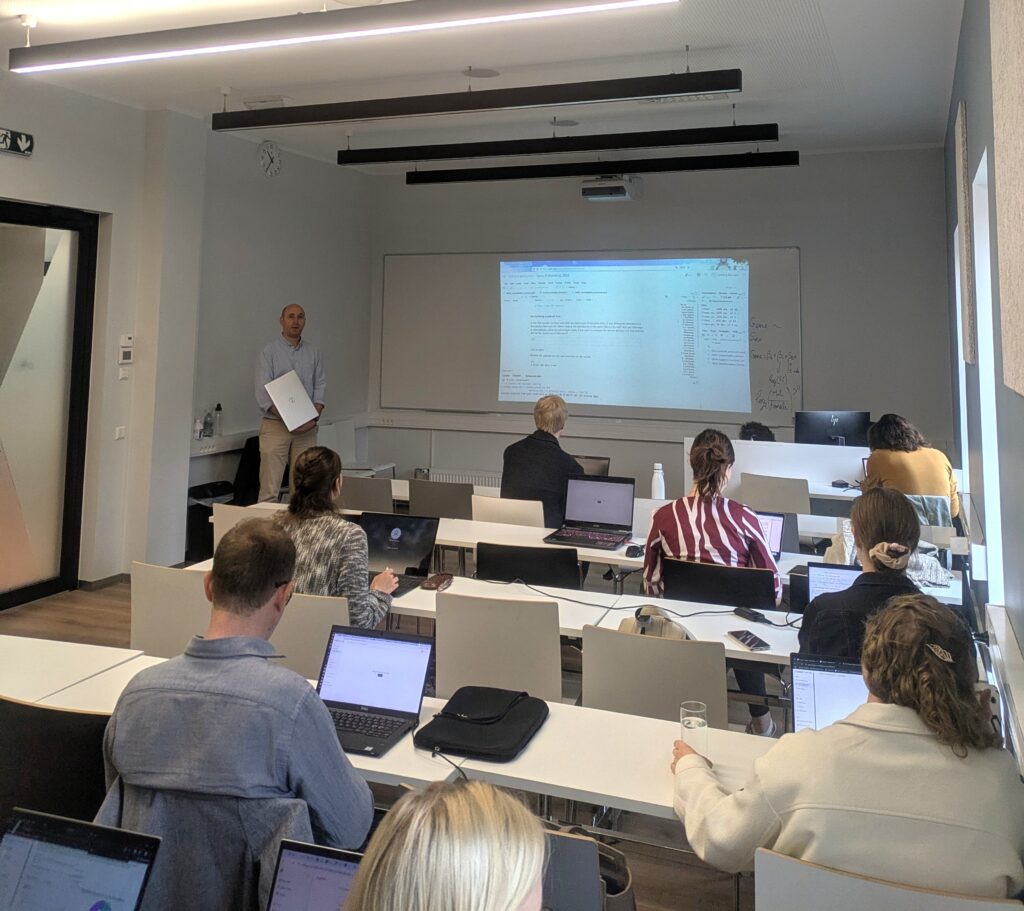
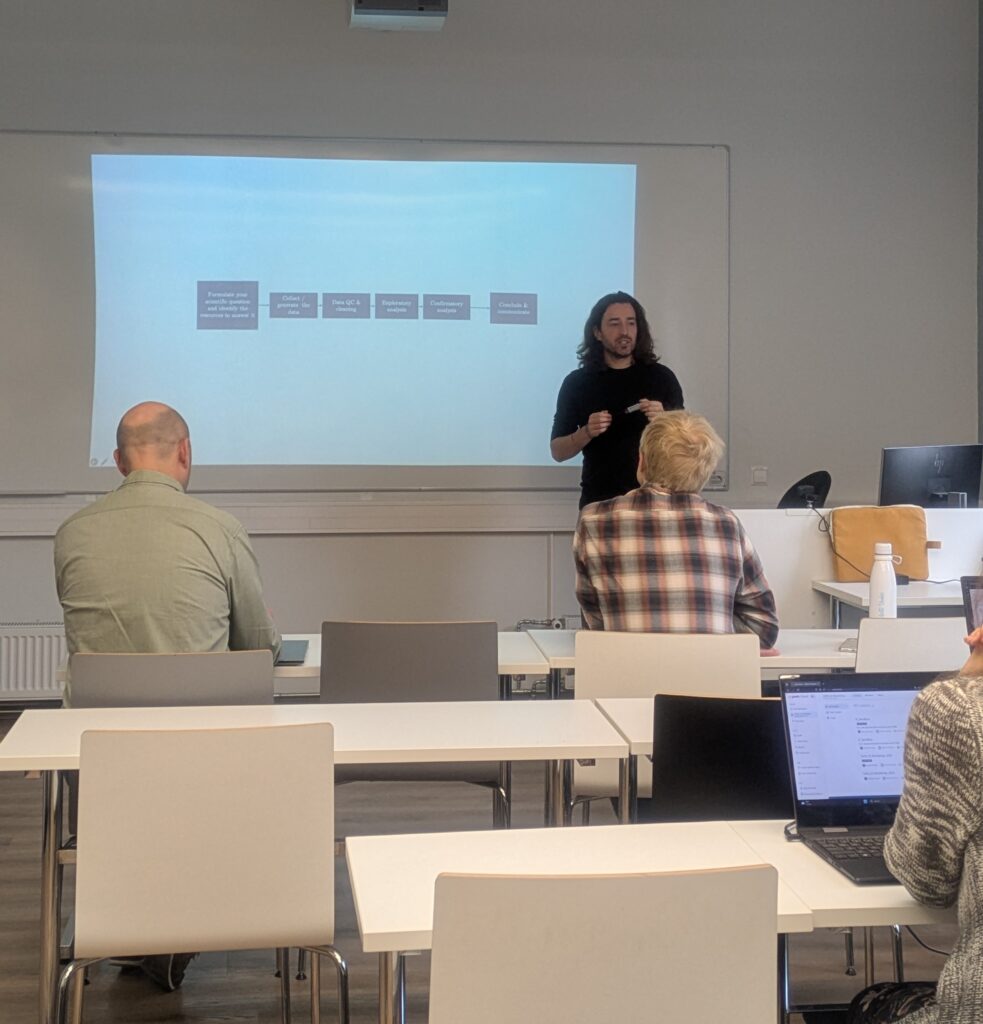
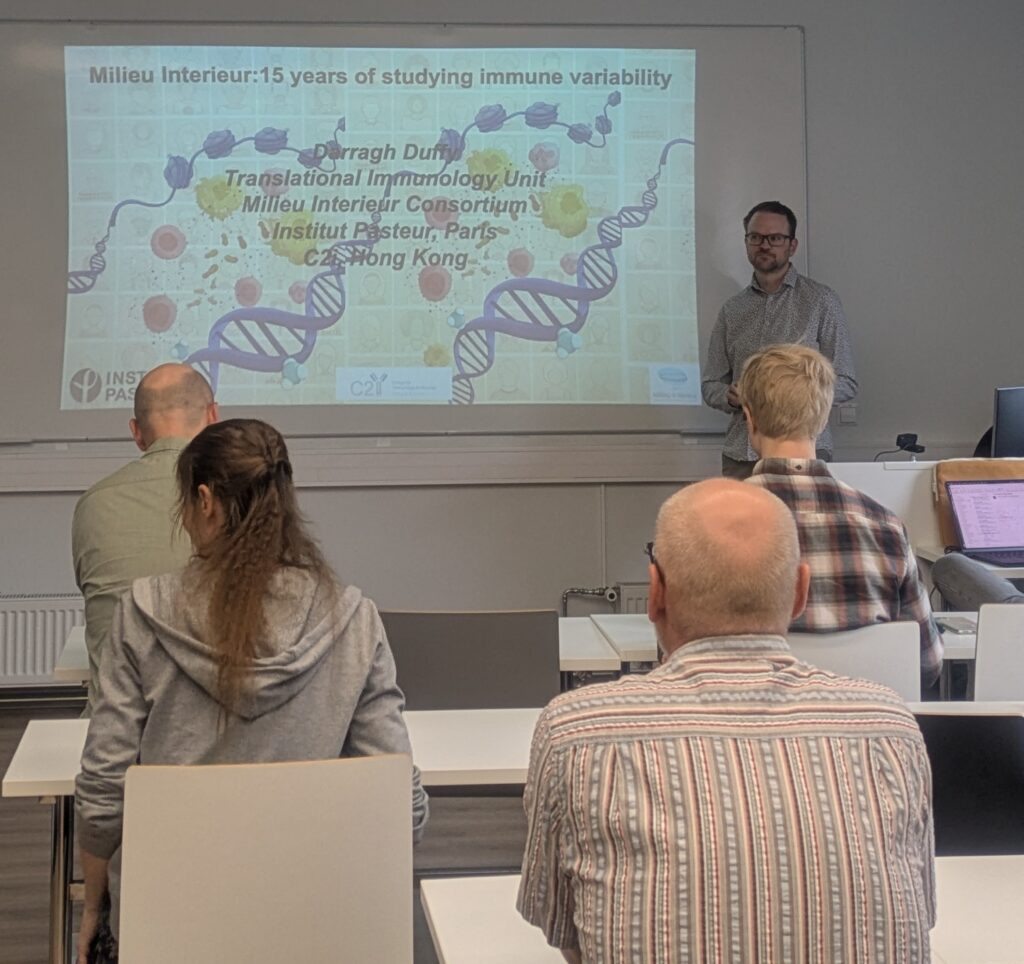
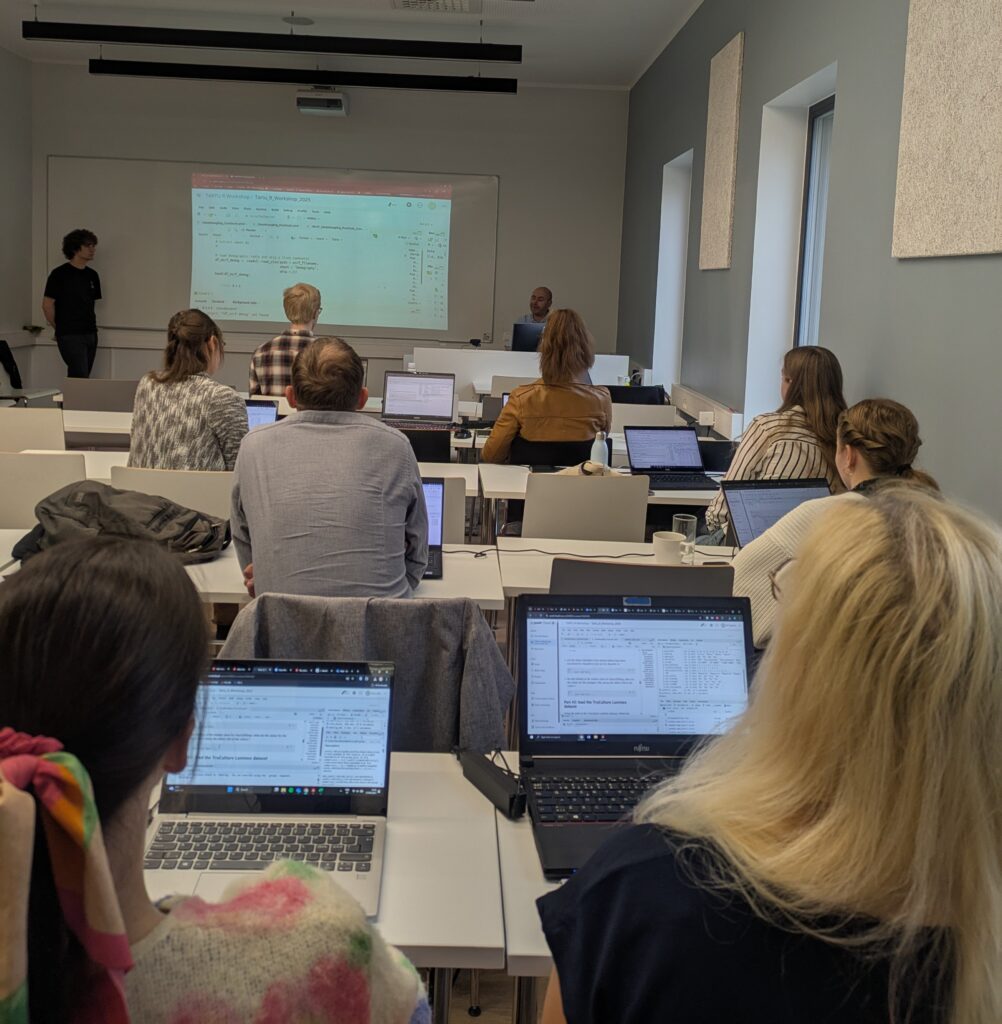
What truly made the course stand out was the dedication and approachability of the Institut Pasteur teaching team: Darragh Duffy, Etienne Villain, Vincent Rouilly, and Anthony Bertrand. The instructors delivered each topic with clarity and relevance, seamlessly integrating theory with practical coding exercises. Participants were encouraged to ask questions throughout the sessions, and the instructors provided individual guidance, helped troubleshoot challenges, and supported more conceptual understanding. Their commitment ensured that all students, regardless of starting level, were engaged and supported.
Beyond lectures and hands-on sessions, the course also created space for informal connections. A relaxing boat trip on the Emajõgi River gave participants and instructors a chance to unwind, enjoy Tartu’s scenic summer views and sauna, and to continue scientific conversations in a more social atmosphere.
In addition to his teaching role, Darragh Duffy, a key SysAge partner, also delivered a seminar at the University of Tartu’s Institute of Genomics. He was given a guided tour of the Estonian Biobank (Geenivaramu), where he learned more about Estonia’s leading role in population-based biobanking and genomic research.
This course fostered both learning and collaboration both of which are core goals of the SysAge project. We are deeply grateful to the team from Institut Pasteur for their outstanding teaching, and to all participants for their enthusiasm, focus, and curiosity throughout the week. We hope the skills and relationships built during this training will spark new research and long-term collaborations across disciplines and borders. Stay tuned for more training activities and events as SysAge continues to build excellence in systems immunology and healthy aging research.


